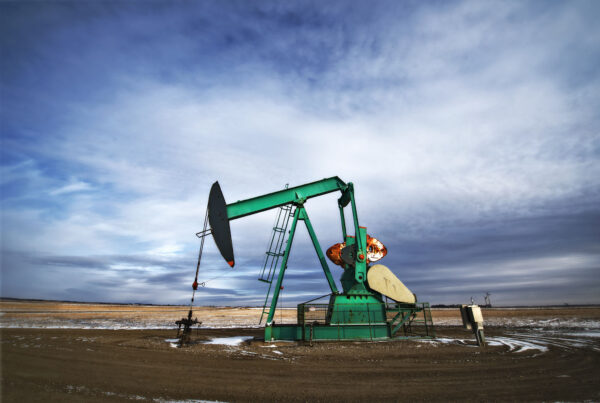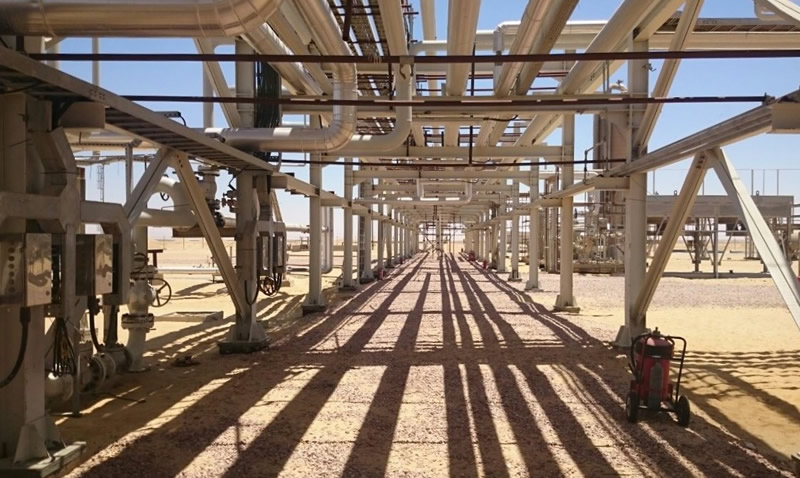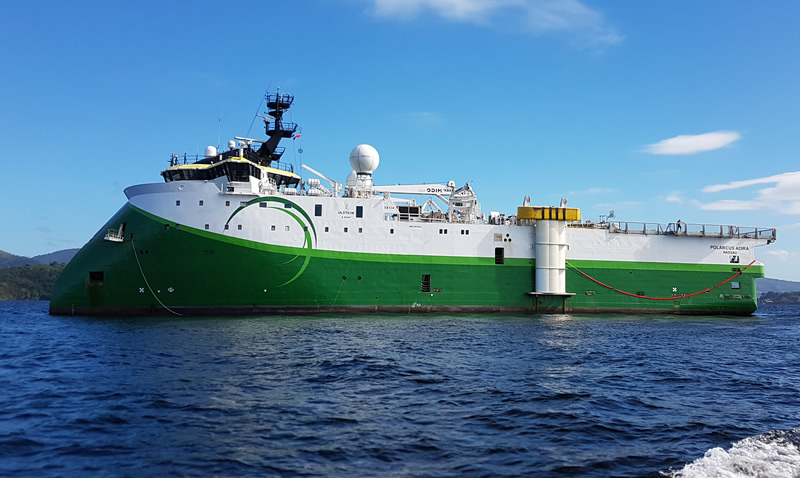In Person – Brian Larkin.
Dubliner’s love affair with the cut and thrust is ‘all-consuming’
For many people, when they think of oil companies, the image that comes to mind is that of the glamour and drama associated with 1980s TV hit ‘Dallas’.
However, the realities of running an oil business can be very different.
Dubliner Brian Larkin established United Oil and Gas in 2015, 10 years after he first began dreaming of setting up the firm.
The inspiration for doing so came from years working for Irish explorers Providence Resources and Tullow Oil.
“Working for two pretty serious entrepreneurs like Tony O’Reilly Jnr and Aidan Heavey, you would be crazy not to learn something and that entrepreneurial spirit was planted in me, especially coming from a small accounting practice background where you are working with business owners all the time,” the qualified accountant says.
Today the company – named after his beloved Manchester United – has assets in Egypt, the UK, Italy and Jamaica. In its core licences in Egypt and Italy, United is working with larger operators, with the Egyptian asset producing 3,000 barrels of oil and gas equivalent per day.
The strategy is to target production and low-risk development assets in Europe and the greater Mediterranean region.
He also wants to take on some high-risk high-reward exploration in Africa, South America and the Caribbean.
“What that gives our shareholders is a roll of the dice and if it doesn’t work the company won’t fall over because of the solid production business. But if one of those does come in it will be life-changing for our company and hopefully our shareholders,” the Dubliner says.
In the future, he hopes the company will be able to take on the operations role in its assets.
While United has, much like Larkin’s football team, a bit to go before it reaches the absolute big time, it has come a long way in a short period since he started out with just €30,000.
To date the company has raised €17m, including €3.3m from its 2015 initial public offering (IPO).
It’s first breakthrough came in 2016 when it acquired a licence in Onshore UK, which it bought out of administration for €141,000, “every single penny of which was raised by begging and borrowing from friends, family, anyone that would give me a few quid.”
However, Larkin had to deal with a lot of no’s before this point.
“In the first few weeks of setting up the company there was a lot of going back and forth to London to try to get a broker and an asset. The timing was good because oil prices had crashed $25 a barrel and I felt it was the time to start, this was around April 2015,” he says.
“I believed the oil price would come back and if I could buy an oil field at the bottom of the price cycle, then when it returned what I had bought would be worth more. If we could do that a couple of times we could build a company on the back of it.”
Sounds relatively easy, but starting out in a sector as big as oil and gas is no straightforward task.
“The first year or two was extremely hard, I was going back and forth to London every week trying to get a broker and a deal, but I was getting no every day from brokers and potential sellers of assets,” he says.
Initially Larkin, full of enthusiasm for his new company, found the process “quite exciting”.
“After three weeks of getting no’s every day it becomes tougher, after a month of getting no’s it becomes head in hands stuff, like ‘what have I done, I left a well-paying job to start this oil company’.”
Undeterred, Larkin decided to make a game out of it, and each week he returned to London determined to get even more no’s than the previous week. “Because all I needed was one yes, just one broker, once I got that broker I knew we would have a great chance of raising more capital to acquire an asset.”
The great lesson learned from the period is that maybes are worse than no’s, because you spend too much time trying to convince them to be a yes when in most cases it became a no,” he says.
The importance of getting the first deal over the line is something that cannot be underestimated.
“It meant we were a proper oil company, we actually had an asset.”
While hundreds of oil deals are done – and celebrated – in the swish London district of Mayfair, Larkin was celebrating United’s breakthrough in “a camper van in Wales in the lashing rain with a four-month pregnant wife beside me and a bottle of £6 Co-op champagne.”
“Once we had the first asset we could then look towards an IPO because the reality is building an oil company is capital intensive, it requires a lot of money, there was no way we were going to be able to raise that type of equity privately,” the father of one explains.
While Irish people and companies have certainly made their mark in the world of exploration, Larkin is vocal on the importance of the City of London to the industry.
“There is so much available capital there, although it is very difficult to raise money in the current climate. The oil and gas business is so international, but the real financing centre is London, you have to have a presence in the City.”
With oil prices taking a hammering this year, and environmental issues getting increasing airtime, it is by no means the most lucrative time to be operating in the sector.
Nonetheless, Larkin is optimistic in his outlook.
“I believe it is a great time to be in the industry – there are opportunities, between potential consolidation of companies, acquisitions and so forth. Some of the best times to be in the business is when the oil price is low because it is an opportunity to acquire assets,” he says.
For now, United’s focus is on cash conservation, so when the oil price begins to recover it can go back into the market and look at acquisitions.
“We always have on average 15 projects under consideration, but we have very strict investment criteria. Thankfully we are cash positive and have a strong balance sheet, so if something comes along that is a no-brainer we will certainly look to do it if we think it will create and deliver value for our shareholders.”
Along with its strictness in asset evaluation, the company is also very particular when it comes to managing geopolitical risk.
“There are opportunities we come across, and they could be technically some of the best opportunities you could see and the economics could be outstanding, but ultimately if the local risk is too big [we will avoid it].
“There is enough risk below the ground to consider managing risk above the ground and you manage what you can,” Larkin says.
“Unfortunately, a lot of the oil and gas is not in glamorous locations, it tends to be in some of the tougher parts of the world and we are very conscious of that.”
For someone so determined to succeed in the oil and gas business, Larkin, interestingly, does not spend his time obsessing over oil prices.
“When oil gets above $80 a barrel the industry runs away with itself, full of excitement and everybody is high-fiving each other,” he says.
“Then when it crashes to $20-$30 a barrel, everybody has their head in their hands. I don’t get that. We try to hold a middle ground, we don’t get too excited when the oil price goes up and we don’t get too despondent when the oil price goes down because its cyclical and it comes back, I have been through three or four oil price cycles and it has always come back,” he adds.
In his opinion $60 a barrel is probably where the industry should be at. At this price Larkin feels deals can get done, firms can get financed and people can make money.
“Thankfully our own breakeven is actually quite low. With our Egyptian portfolio our operations expenditure per barrel is $6.50, which is extremely low. All of our assets combined are about $20 a barrel, which is exceedingly low for the industry.”
While Larkin, a self-confessed bookworm, is Manchester United and Bruce Springsteen “obsessed”, he is not afraid to amid he is “addicted” to his company.
“There is no switch off and I absolutely love it.
“I love the business, doing deals, drilling oil wells, engaging with our shareholders, I love every single bit of it, and it’s almost like I don’t want to switch off, it’s all-consuming.”
While his business may be in its infancy, it has already achieved a lot and glory days may not pass it by.



